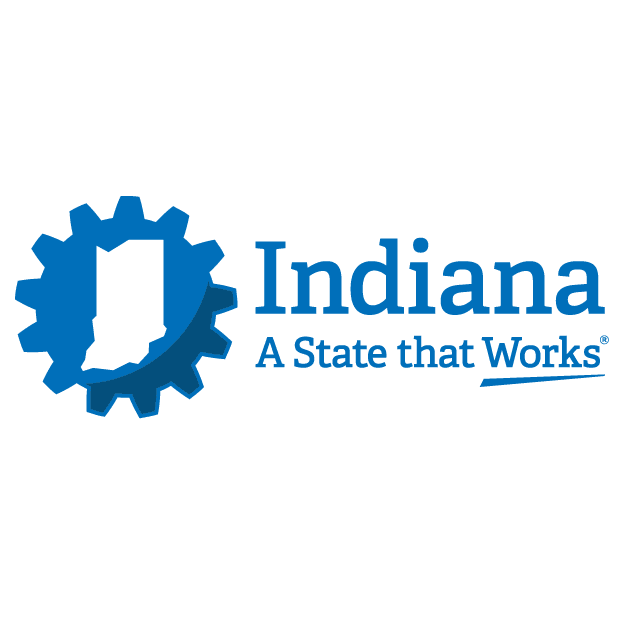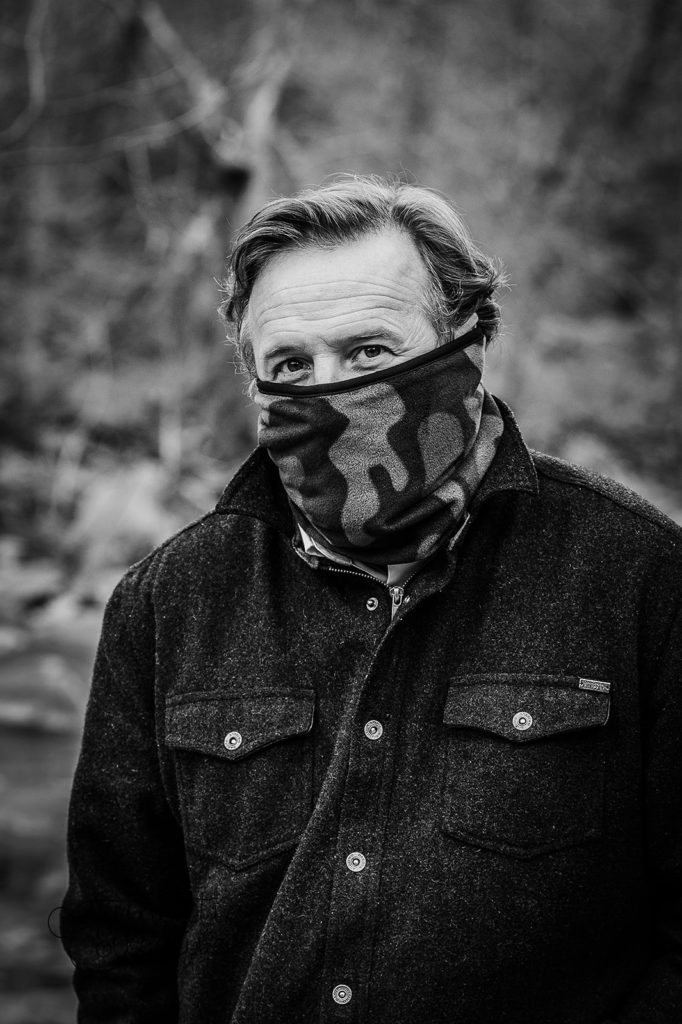 This is the latest in our “Masters of Manufacturing” series, presented in partnership with The Indiana Economic Development Corporation. Each month we share insights and ideas from innovative, growth-minded manufacturing CEOs from across the nation as they navigate this tricky time in history.
This is the latest in our “Masters of Manufacturing” series, presented in partnership with The Indiana Economic Development Corporation. Each month we share insights and ideas from innovative, growth-minded manufacturing CEOs from across the nation as they navigate this tricky time in history.

There’s a bit of Forrest Gump in Carlton Solle. Like the Tom Hanks movie character who always seemed to show up at pivotal moments, the entrepreneur from northern California has participated in the international boom in energy drinks, helped market soccer in America before it was cool, and developed a recyclable plastic bottle from plant materials years before the world knew about the garbage patch in the middle of the Pacific Ocean.
Now, as co-founder of an Atlanta-based startup called G95, Solle is gearing up production at a contract manufacturer in Grand Rapids, Michigan, of an antibacterial, washable scarf with built-in filtration designed to protect wearers from viruses and bacteria as well as pollution, allergens and smoke. It’s the perfect accessory for fashion-conscious COVID-19 worriers and even could be pressed into just about any clinical situation in a pinch.
This is just a few weeks after Solle’s plan for contract manufacture in Ningbo, China, fell through recently because the spread of the coronavirus there shuttered the plant. He had a new contract with the plant to supply 40,000 Bioscarf units as a follow-on to success that Solle had in peddling about 30,000 of the Chinese-made scarves to customers in about 40 countries in his first two years in business.
“Out of the sheer necessity of staying in business and bringing our stuff here to the United States, we seem to be in position where we could help” meet spiking demand for masks to protect Americans against transmission of COVID-19, Solle told Chief Executive. “We sold 1,000 of them today,” he said last week. “The factory has doubled its workforce again in the last three days after doubling it six days ago to make my stuff.”
The $69 Bioscarf covers the neck and face in fashion fabric that sandwiches surgical-level filtration material. “The whole idea is to make it like fashion with protection built in,” Solle said. G95 – named so because the material carries a “95-percent efficiency rating” in technical parlance – also sells Biohoodies made out of the material, Biogoggles and other items since incorporating late last year.
Solle and his wife, Hazel Solle, created Bioscarf in 2017 out of a serendipitous combination of their backgrounds. A few years ago, Solle had taken over an auto-parts business from his father that distributed goods made in China. On one trip there, he fell ill from air pollution, and a doctor suggested he begin wearing an N95 filtration mask if he was going to keep coming to China.
“They were the little ones that make you look like you’re sick,” Solle said. “I didn’t want to do that. So I came back home and was talking with my wife, and we agreed that it was crazy there was no mask available other than one like that.”
Hazel Solle recalled how as a girl growing up in rural Costa Rica, she would fashion tiny fashion scarves for her dolls out of remnants of material. What if the Solles could make human-scale fashionable “bio” scarves for people?
Solle had a history as “an idea guy,” he said. A soccer player at the University of California at Berkeley, he had ambitions to play professionally in Mexico but then got injured. He ran nightclubs in San Francisco and elsewhere for about 10 years. Then he kicked around for several more years, but usually in some way participating in or helping create a new trend.
For example, Solle helped Major League Soccer with some early marketing of the U.S.-based league as it was finding its footing. He helped Rockstar do some of its earliest marketing of energy drinks in Latin America, he said. And while living in Costa Rica, he developed a plant-based bottle and recycling system – the basis of another would-be startup that he is still pursuing.
Solle’s experience with Chinese manufacturing gave him connections for contract assembly of his various wares, but the filtration material is custom-made in Europe. “We had to learn all about filtration, about levels of protection, manufacturing techniques and other stuff so we could address as many issues as possible,” Solle said. “Plus the material had to stand the test of time and be washable.”
Long before the coronavirus popped up in Wuhan, China, in January, Solle was selling Bioscarves to consumers who wanted protection from air pollution in Paris, from smoke due to the wildfires that raged in Australia, and from rising incidences of allergies that some were ascribing to climate change.
After a year, TV star Bear Grylls, who also sells survivalist gear, wanted to do a deal with Solle. “I realized I had to make my products stronger and reinforce everything because people were doing stuff with it we couldn’t control, such as using it for protection from welding and from silica dust involved in electrical work,” he said.
This year, the rapid spread of the coronavirus in China created a supply-chain crisis for G95. Soon the spread of COVID-19 into and across the United States also created what Solle knew could be a huge new market opportunity—as long as he could get ahead of it.
Solle addressed both developments by talking with a recent new acquaintance, Lance Korhorn, a Grand Rapids-area firefighter whose small manufacturing outfit, Ladder 34, upcycles decommissioned fire hoses into belts, floor mats and other products. The two entrepreneurs had met via their mutual interest in environmentally sustainable products.
Gearing up to meet an instantaneous surge in demand has been dicey. For example, Solle said, “I had to buy a 45-foot trailer full of microfleece [from Europe] because I didn’t know if I’d be able to get more of it a month from now.” At the moment, he has enough raw materials on hand that Ladder 34 could make about 100,000 units of the Bioscarf.
All of G95’s original fabric is still in inventory in China, so Solle is having to scramble to re-source in the United States. And he’s had to raise prices by about $10 per scarf to cover materials costs that are four to five times higher than in China.
One challenge in his attempt to Americanize his supply chain confronted Solle when he tried to re-source the brand’s rubber badges on G95 products.
“They only cost us 20 cents each in China,” he said. “When I went to try to source them with a company in San Diego, they wanted $5.89 apiece. I said, ‘What are these – free-range badges? Gluten-free badges? Are you having to fly to Brazil to tap a rubber tree to make them?’ They just shrugged their shoulders at me and said there’d be a three- to five-week turnaround.”

Chief Executive Group exists to improve the performance of U.S. CEOs, senior executives and public-company directors, helping you grow your companies, build your communities and strengthen society. Learn more at chiefexecutivegroup.com.
0

1:00 - 5:00 pm
Over 70% of Executives Surveyed Agree: Many Strategic Planning Efforts Lack Systematic Approach Tips for Enhancing Your Strategic Planning Process
Executives expressed frustration with their current strategic planning process. Issues include:
Steve Rutan and Denise Harrison have put together an afternoon workshop that will provide the tools you need to address these concerns. They have worked with hundreds of executives to develop a systematic approach that will enable your team to make better decisions during strategic planning. Steve and Denise will walk you through exercises for prioritizing your lists and steps that will reset and reinvigorate your process. This will be a hands-on workshop that will enable you to think about your business as you use the tools that are being presented. If you are ready for a Strategic Planning tune-up, select this workshop in your registration form. The additional fee of $695 will be added to your total.

2:00 - 5:00 pm
Female leaders face the same issues all leaders do, but they often face additional challenges too. In this peer session, we will facilitate a discussion of best practices and how to overcome common barriers to help women leaders be more effective within and outside their organizations.
Limited space available.

10:30 - 5:00 pm
General’s Retreat at Hermitage Golf Course
Sponsored by UBS
General’s Retreat, built in 1986 with architect Gary Roger Baird, has been voted the “Best Golf Course in Nashville” and is a “must play” when visiting the Nashville, Tennessee area. With the beautiful setting along the Cumberland River, golfers of all capabilities will thoroughly enjoy the golf, scenery and hospitality.
The golf outing fee includes transportation to and from the hotel, greens/cart fees, use of practice facilities, and boxed lunch. The bus will leave the hotel at 10:30 am for a noon shotgun start and return to the hotel after the cocktail reception following the completion of the round.